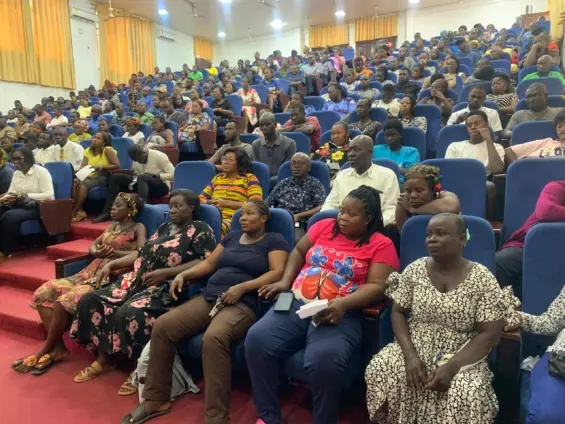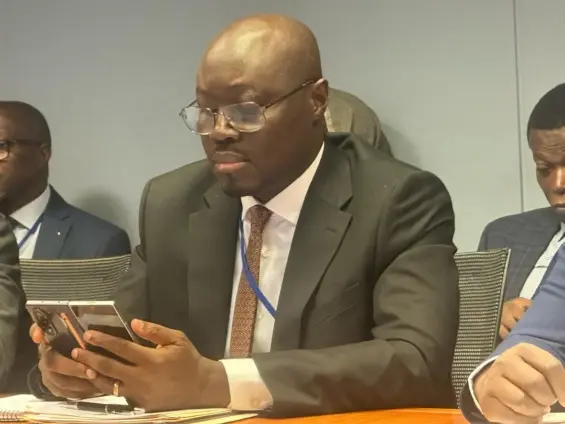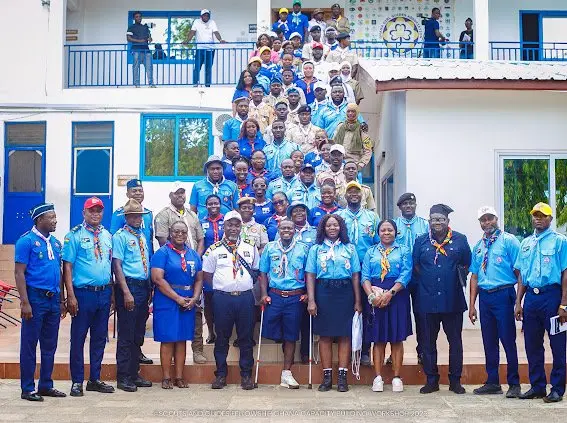Accra, Ghana – In a groundbreaking move poised to reshape the landscape of human resource management, the University of Ghana, in collaboration with the Chartered Institute of Human Resource Management, Ghana (CIHRMG), has launched a pioneering Professorial Chair dedicated to HR Workforce Development Ghana. This initiative marks a significant stride towards addressing critical gaps in workforce standards and ethical practices, issues that have increasingly drawn attention from both industry leaders and policymakers.
The establishment of this Chair aims to bridge the divide between academic HR theory and its practical application, a challenge that has long hindered optimal workforce performance and national development in Ghana. According to Dr. Ellen Hagan, a leading voice in the HR sector, the Chair represents a “critical lever” for driving leadership and development across the nation. The initiative seeks to elevate HR practices to meet international standards, ensuring Ghanaian businesses and organizations are equipped to thrive in a competitive global market.
Historic Launch of Professorial Chair in HR Management
The launch event was attended by a diverse group of stakeholders, including prominent figures from academia, industry leaders, and government officials, underscoring the widespread recognition of HR’s pivotal role in national progress. The core mission of the Professorial Chair is to integrate cutting-edge academic research with the day-to-day realities of HR management, ultimately shaping policies that support Ghana’s overarching development priorities.
“This is about harnessing brainpower and resources to reshape how we manage people in Ghana,” stated Dr. Ellen Hagan. “Without effective HR, no organization or country can truly thrive.” This sentiment encapsulates the urgency and importance of the initiative, particularly as Ghana solidifies its status as a chartered HR profession.
This step is viewed as a long-overdue move towards professionalizing HR in Ghana, aligning the country with international best practices and enhancing the credibility of HR professionals nationwide.
Key Insights from HR Leaders
Dr. Ellen Hagan’s keynote address shed light on the Chair’s potential to generate locally relevant research that can directly influence HR policy and practice. She envisioned the Chair as a catalyst for transformative change, producing insights that are not only academically rigorous but also immediately applicable to the Ghanaian context.
“This Chair is not a symbolic gesture; it’s a critical lever for driving leadership and development across Ghana,” Dr. Hagan emphasized, urging stakeholders to actively participate in and support the initiative.
Mrs. Florence Hutchful, representing CIHRMG, articulated how effective HR management is intrinsically linked to economic growth and national productivity. Her remarks highlighted the need for a renewed focus on workplace behavior and ethics, issues that have recently been brought to the forefront by national leaders.
“At a recent forum, the President himself raised concerns about workplace behavior and ethics,” Mrs. Hutchful noted. “This reflects a deeper issue we must confront, and this Chair is a timely and strategic response.” This acknowledgement underscores the critical need for ethical HR practices to foster a productive and responsible workforce.
CIHRMG’s plans extend to the development and implementation of national HR standards, coupled with a renewed emphasis on ethical conduct. These standards aim to provide a framework for organizations to cultivate workplaces characterized by integrity, fairness, and accountability.
“We must build capacity with both competence and character,” Mrs. Hutchful asserted, emphasizing the importance of developing HR professionals who are not only skilled but also deeply committed to ethical principles.
Future Collaboration and Impact
Professor Obi Damoah of the University of Ghana hailed the launch as a historic turning point, signaling the beginning of an extensive collaboration between CIHRMG and the university. He expressed optimism about the potential of this partnership to drive meaningful change in the HR landscape.
“This Professorial Chair is just the beginning of a broader collaboration between CIHRMG and the University of Ghana,” Professor Damoah stated. “Now is the time for all of us to contribute and make it impactful.”
The expected long-term impact on HR practices in Ghana is substantial. The initiative is anticipated to contribute to policy changes, improved business practices, and an enhanced ability to attract foreign investment. By fostering a culture of ethical leadership and professional development, the Chair aims to elevate overall workforce standards and ensure Ghana’s competitiveness in the global economy.
In conclusion, the launch of the Professorial Chair represents a pivotal moment for HR Workforce Development Ghana. This collaborative effort seeks to bridge the gap between theory and practice, enhance workplace ethics, and drive sustainable economic growth, solidifying HR’s role as a strategic driver of national development. All stakeholders are encouraged to support this transformative initiative and contribute to its ongoing success.
Image Source: MYJOYONLINE






















